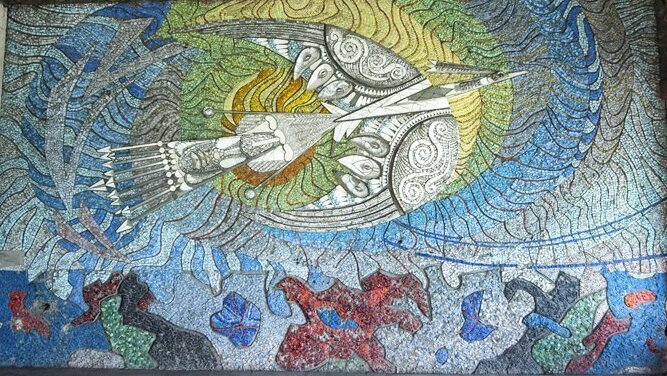
Online Courses in Computer Research of the Ukrainian Language
- The program is designed for bachelor's and master's students from Ukrainian universities who have a keen interest in the practical aspects of linguistics and contemporary issues in literary studies.
- Participants have the option to select one or two courses according to their preferences. To apply for enrollment, interested individuals are required to complete the application form, submit a motivation letter, and provide a document validating their student status (such as a student ID card).
- Each course within the program is evaluated in ECTS (European Credit Transfer and Accumulation System). Upon successful completion of a course, participants will receive a certificate, which can be utilized as a basis for re-enrollment in the corresponding discipline at their respective universities.
Scholarships
- The program presents an exceptional opportunity to secure one of the 80 scholarships worth 800 euros each.
- The scholarships will primarily be awarded to students residing in frontline areas, internally displaced persons, or individuals facing financial hardships as a result of the war. To verify eligibility, applicants are required to provide relevant documentation, such as a certificate of being an internally displaced personExternal link or a document substantiating their financial difficulties.
- Please note that we reserve the right to request additional information or documentation to validate your eligibility for the scholarship.
- Based on the results of the study, the scholarship will be disbursed in two installments: one in the middle of the course and the other at the end. The funds will be transferred directly to a bank account, as cash payments are not possible.
Important dates
- The deadline for applications is September 6th, 2022.
- The decision regarding admission to the course(s) and scholarship will be announced by September 15th, 2022.
Appilcation from
You can apply hereExternal link (applications are closed).
Autumn Semester 2022
-
Corpus Linguistics
This course offers an introductory exploration into corpus linguistics, which is considered one of the most dynamic fields in modern linguistics. It is divided into two main components: the first part focuses on designing and constructing corpora, while the second part concentrates on utilizing corpora in linguistic research. Throughout the course, students will acquire the skills to design and develop their own corpora, as well as harness the functionalities provided by existing corpora. The emphasis will primarily be on Ukrainian corpora, with supplementary examples and insights drawn from English corpora.
- Language of instruction: Ukrainian
- Lecturer: Dr. Vasyl Starko (Ukrainian Catholic University)
- SyllabusExternal link
-
Introduction to Computational Linguistics for Philologists
The course offers a comprehensive overview of computational linguistics, covering essential concepts, approaches, and domains within the field. Students will gain practical experience in utilizing tools for natural language processing, with a specific focus on both Ukrainian and English languages.
- The language of instruction is Ukrainian, with some materials presented in English
- Lecturer: Dr. Vasyl Starko (Ukrainian Catholic University)
- SyllabusExternal link
-
Morphological Analysis
The course serves as an introductory exploration of morphological analysis in computational linguistics, with a specific focus on the rich morphology of the Ukrainian language. Adopting a formalized approach, it covers key concepts and challenges involved in morphological analysis across various language types. Students will develop the skills to analyze the results generated by a morphological analysis system for Ukrainian and accurately identify the morphological features associated with Ukrainian words.
- Language of instruction: Ukrainian
- Lecturer: Dr. Vasyl Starko (Ukrainian Catholic University)
- SyllabusExternal link
-
Computer Lexicography
The course provides an in-depth exploration of different types of dictionaries and their application in contemporary computer programs, specifically focusing on annotating linguistic corpora. Students will gain hands-on experience in compiling various vocabulary resources based on the Ukrainian corpus (GRAC: uacorpus.org). The acquired knowledge and skills will be utilized in the GRAC project, leveraging the outcomes for practical purposes.
- Language of instruction: Ukrainian
- Lecturers: Dr. Mariia Shvedova (Lviv Polytechnic National University) & Dr. Vasyl Starko (Ukrainian Catholic University)
- SyllabusExternal link
-
Methods and Linguistic Resources for Natural Language Processing
The course focuses on achieving a comprehensive mastery of NLTK, a prominent natural language processing library widely used for developing Python programs to analyze textual data. NLTK offers a wide range of corpora and lexical resources, including WordNet, along with a collection of libraries for textual analysis at various levels. Students will gain proficiency in utilizing the core functions and language resources provided by NLTK, as well as performing tasks such as pre-processing, morphological analysis, and syntactic analysis in Python.
- Language of instruction: Ukrainian
- Lecturer: Dr. Olha Kanishcheva (National Technical University “Kharkivs'ka Polytekhnika” and Ukrainian Catholic University)
- SyllabusExternal link
-
Named Entity Recognition in Text
The primary objective of this course is to equip students with the skills to effectively utilize spaCy, one of the leading NLP libraries, for performing named entity recognition. Throughout the course, students will gain proficiency in utilizing data methods and structures, harnessing trained pipelines, and effectively integrating statistical and rule-based approaches to text analysis. The emphasis will be on teaching students how to seamlessly combine these techniques in order to achieve accurate and efficient named entity recognition tasks.
- The language of instruction is Ukrainian, with supplementary materials presented in English.
- Lecturer: Dr. Olha Kanishcheva (National Technical University “Kharkivs'ka Polytekhnika” and Ukrainian Catholic University)
- SyllabusExternal link



